Bilawal calls for relief, not rhetoric — questions PML-N 'U-turn' on BISP
Sindh announces Benazir Hari Card to support small farmers with DAP, urea purchases
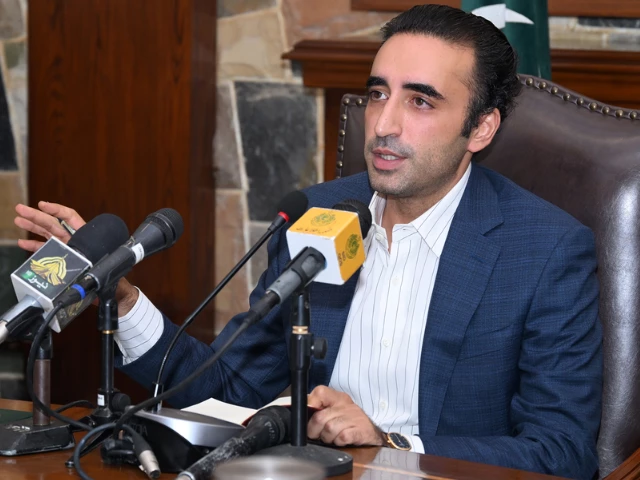
Pakistan Peoples Party Chairperson Bilawal Bhutto Zardari has defended the Benazir Income Support Programme as Pakistan’s most effective social safety net and urged the federal government to use it for “immediate relief” to flood-affected farmers.
“We had requested that flood victims be supported through Benazir Income Support Programme (BISP), just as was done during previous floods and even during COVID,” Bilawal said at a press conference at the Chief Minister’s House. “If this is not being done today, then my question is: what is the fault of the people of South Punjab?”
He recalled that BISP was introduced by the Pakistan Peoples Party (PPP) during a PML-N government. “All PML-N leaders had continuously praised this programme. If they have now taken a ‘U-turn’, they should be asked why,” he said, adding that most beneficiaries were in Punjab and the initiative covered employment, education and other vital aspects. He noted that the programme had been internationally recognised, with several countries following its model. “Those criticising it perhaps don’t know it well. BISP covers employment, education and all aspects of social protection,” he added.
Read: 'Every Pakistani wants to defend holy cities'
Earlier, Punjab Information Minister Azma Bukhari accused the PPP of pushing Sindh and Karachi into “dark ages” despite ruling the province for years. Without naming Bilawal, she said that unlike Punjab’s chief minister and cabinet, who stayed with flood victims throughout, Sindh’s PPP leaders announced visits only after the rain had stopped.
Bilawal said Sindh had already announced a “Benazir Hari Card” to support small farmers with DAP and urea purchases. “It is better to spend money on our own farmers rather than send it abroad by importing wheat. Instead of imports, Pakistan should move towards wheat exports,” he argued.
He pointed to the Sindh government’s Benazir Hari Card initiative, launched on his directives, which aims to register 1.5 million farmers across the province. So far, 336,000 farmers have been enrolled, including 42,000 in Sukkur and Ghotki, with Rs18 billion already disbursed. The multi-purpose ATM card enables direct transfers of subsidies for seeds, fertilisers and other inputs, with small farmers prioritised in the first phase.
Bilawal thanked the federal government for waiving electricity bills for flood victims but urged further assistance. “If the federal government supports us, we can increase this help,” he said, calling for an agricultural emergency, IMF engagement on wheat procurement and tax relief for farmers. He stressed that Punjab, particularly South Punjab, had suffered the greatest crop losses.
Read More: 42,000 farmers registered for Hari Card in Sukkur, Ghotki
On rehabilitation, he said floods have two phases — rescue and relief, followed by rehabilitation. He cited Sindh’s housing programme for flood victims as a model for other provinces and criticised the federal government for not launching an international aid appeal. “In every past disaster, federal governments made such appeals. Why not now?” he asked.
Foreign policy and domestic politics
On international affairs, Bilawal praised the Pakistan–Saudi defence agreement as “a good accord” that had won wide appreciation. He said the Foreign Affairs Committee, led by Hina Rabbani Khar, had scheduled a meeting with the possibility of an in-camera briefing. “We will fulfil our parliamentary responsibilities,” he said.
On Palestine, he welcomed the strong debate at the UN General Assembly. “It proves the struggle of the Palestinian people is bearing fruit. The effects of Israeli attacks are being seen in the form of Pakistan–Saudi agreements. I hope Arab countries and those supporting Israel will also review their policies.”
Bilawal confirmed he would meet MQM leaders and urged the PML-N to share its draft on constitutional amendments. “If they want to make constitutional changes, they should talk to the PPP. We will take decisions through consultation,” he said.
When asked about the recent situation in Balochistan, Bilawal noted: “There has been an observable increase in terrorism in Balochistan and Khyber-Pakhtunkhwa. This will inevitably create a national security dynamic which will affect society. It’s not a military solution in Balochistan, it’s a political one.”
Also Read: Blast derails Jaffar Express in Balochistan's Mastung, injures a dozen passengers
He also acknowledged Karachi’s pressing problems, particularly water shortages. He said the provincial government’s priority was resolving the water crisis through projects like the Hub Canal, followed by roads and other works, while stressing the need for coordination so newly built infrastructure is not damaged by utility works.
On federal–provincial relations, Bilawal said Sindh had received support under the current government and thanked Prime Minister Shehbaz Sharif and Deputy Prime Minister Ishaq Dar for keeping their promises. Despite challenges in Sindh’s Public Sector Development Programme (PSDP), he said the federal government had contributed fairly, though “the size can still be discussed.”
He added that the country’s largest housing programme and the biggest land reform since Zulfikar Ali Bhutto were both possible due to federal backing.


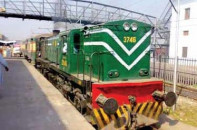


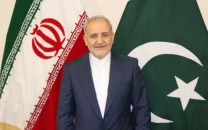
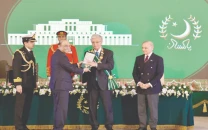

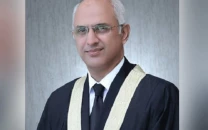

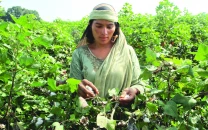












COMMENTS
Comments are moderated and generally will be posted if they are on-topic and not abusive.
For more information, please see our Comments FAQ